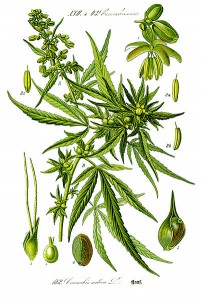 Last year’s November’s election legalized medicinal marijuana in two states, bringing the total to 18 states and the District of Columbia. And two states also legalized it for recreational use.
Last year’s November’s election legalized medicinal marijuana in two states, bringing the total to 18 states and the District of Columbia. And two states also legalized it for recreational use.
So what does it mean to use marijuana while breastfeeding, either for medicinal or recreational purposes? How many women do it? What does the research say about its effect on breastfeeding and on babies, and how should mothers be advised about it?
This fall’s edition of Clinical Lactation had an article which addresses these questions, and I’m pleased to share a Q and A with the author, Carrie Miller, lactation consultant and Nursing Instructor at Seattle University.
What percentage of mothers use marijuana while breastfeeding, either for medicinal or recreational purposes?
As of the date of the publication and currently, we really do not know scientifically the percentage of mothers who use marijuana while breastfeeding. We have the rates of drug use overall for women during childbearing years, but reports are conflicting on this issue with rates as low as 3% to as high as 30% (Garry, 2009). The challenge may be that mothers are hesitant to disclose marijuana use for fear of law enforcement or child protective service investigation. Even though marijuana has been decriminalized or is considered legal for medicinal purposes in 18 states, including Washington DC, it is still against federal law to possess or use marijuana. Marijuana use in childbearing women and especially mothers who are breastfeeding is very hard to study because of ethical issues. Because there are studies that present negative results for infants during the first year of life and into the early school years, being able to study mothers who are breastfeeding and using marijuana is very challenging.
What effects can marijuana use have on breastfeeding, and on babies?
The information available suggests that the effects on newborns whose mothers used during pregnancy are consistent with drug withdrawal, including weak suck, uncoordinated suck, trouble latching and maintaining the latch to the breast. Babies are jittery, fussy and have difficulty calming or self-soothing. Babies may not gain weight according to medical recommendations. The symptoms of withdrawal may be mild or severe. Consider this, during pregnancy; a fetus receives any drug, medication, or nutrients that a mother receives. When the umbilical cord is cut at birth; the link between mother and infant is severed and the baby has to withdraw from what he or she is used to receiving. Withdrawal from drugs can be very hard on babies and take weeks for babies to recover. Click here for a discussion comparing the recommendations for maternal methadone vs. marijuana use to lessen withdrawal symptoms in the newborn when the mother has used these substances during pregnancy.
Studies are conflicting about the effects marijuana can have on babies when mothers use during breastfeeding. Some studies suggest women who breastfeed and use marijuana regularly, such as daily, can potentially negatively impact infant growth and development. Other studies have shown that occasional use does not appear to have as many negative effects for infant growth and development. This is a very hard question to answer because the definition of “occasional use” can mean different things to different people. Studies are conflicting, with some showing significant negative effects and others showing minimal negative effects.
What does the law say about using marijuana while breastfeeding, especially in states where use is legal for medicinal or recreational purposes?
There is no legislation that I am aware of that addresses this issue. The reason my article did not address legal implications is each state has their own criteria of when marijuana is legal to use, how much a person can possess if legal and where they can use marijuana. Keep in mind; even though many states have decriminalized marijuana, it is still against federal law. States are navigating what the laws should be and how to enforce them when marijuana use is against federal law.
How should mothers be advised by health care providers about use while breastfeeding?
What advice to offer women is difficult, as every situation and mom is different. The benefits of breastfeeding are well known and the goal according to all breastfeeding experts and health care providers is to encourage women to offer human milk to their infants. Breastfeeding is safe with most medications; however, there are medications that are harmful for mothers to use during pregnancy and breastfeeding. For women who use marijuana medicinally or recreationally, an open conversation needs to take place between the mother and medical providers.
For mothers who choose to use marijuana, careful consideration needs to be taken and moms need to consider alternatives during the breastfeeding experience. If a mom feels strongly about using marijuana, she needs to consider alternatives to offering breast milk to her infant. An infant’s brain is changing and growing so quickly during the first two years of life and marijuana primarily effects how the brain works with changes in perception, thought processes, memory and coordination.
Current recommendations to moms are as follows:
The Academy of Breastfeeding Medicine (2009), Hale (2010), and the American Academy of Pediatrics (2012) recommend that women avoid breastfeeding if they consistently or heavily use marijuana, either recreationally or medicinally. Further, women who do not receive consistent prenatal care, have a positive urine drug screen at time of delivery, and have no confirmed plan of care at the time of delivery should not breastfeed. When breastfeeding is contraindicated, mothers need information regarding banked human milk and preparation of artificial baby milk. The rationale for this recommendation is clear; the available evidence suggests that THC passes through the breast milk and can potentially adversely affect the breastfed infant (ABM, 2009; Astley & Little, 1990; Garry et al., 2009; Hale, 2010).
What are the big gaps in the research about use while breastfeeding?
Due to the ethical challenges of drug research projects that involve infants and children, current studies are difficulty to set-up and gain approval for with ethical boards for research studies. Funding is also challenging as large funding organizations are concerned about the potential harm to infants and children when researching medications or drugs that have already demonstrated negative effects. However, as more states legalize the use of marijuana, either medicinally or recreationally, studies will need to be conducted to help gain a deeper understanding of the current issues and effects of marijuana available today on childbearing women, infants, children and families.
Image credit: Wikimedia Commons














